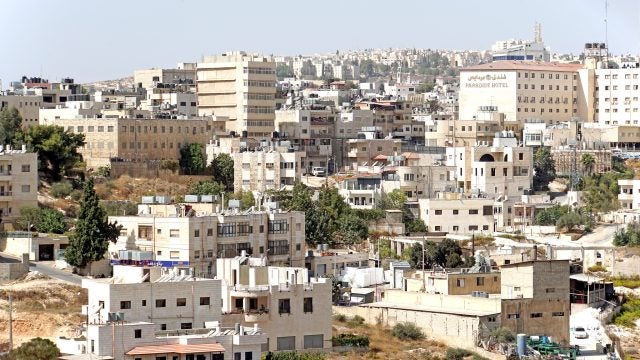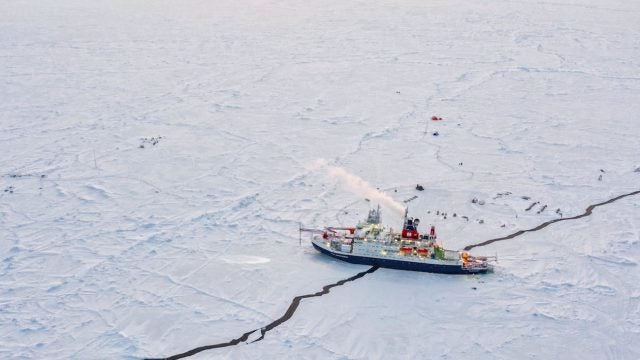
Title: Potential for Peace: Turkey and the PKK
At the end of March, the head of the Kurdistan Workers Party (PKK), Abdullah Ocalan, called for a ceasefire in the conflict with Turkey and urged the PKK fighters to withdraw from Turkey. The PKK is a Kurdish nationalist group that has been fighting for autonomy since 1984 and is labeled as a terrorist group by the Turkish government and the United States. This ceasefire comes at an unusual time. The Syrian Civil War has provided greater opportunity for the PKK to act within Turkey, as the Turkish security forces must contend with protecting the border with Syria and addressing the massive influx of refugees. Initially the PKK took advantage of the opening provided by Syria; the summer of 2012 saw an upswing in PKK violence to its highest level in more than a decade. Yet less than a year later, a truce has been called, and there is some cautious optimism for a peaceful solution to the Kurdish issue in Turkey.
Simply put, Turkey has more of a vested interest in a peaceful resolution to the Kurdish conflict than ever before. The Syrian Civil War has given the Turkish security forces another, more urgent threat to address; they cannot afford to focus on the PKK as much as they did before the civil war started. Furthermore, parts of the Turkish-Syrian border region are heavily Kurdish. Pacifying the Kurdish areas will make the Turkish border safer from spill-over from Syria. Nearly thirty years of counter-terrorism and counterinsurgency have not been successful in crushing the PKK, so another method must be tried. Furthermore, domestic Turkish support among the Turkish population for a peace deal is stronger than in previous years, and the opposition to settling the Kurdish issue is weaker. There are still hardliners on both sides, and there always will be. But the increasing popular support for a peaceful resolution amongst the majority Turkish population is an extremely positive sign, and could push elected officials to compromise.
There is also an economic component that increases the prospect of peace. Turkey has been making economic inroads with the Iraqi Kurdish population for the past few years. Seventy percent of Turkish exports to Iraq go to the Kurdish areas and Iraq is now the second most valuable market for Turkish exports after Germany, which has a substantial Turkish population. Furthermore, there has been movement on building an oil pipeline directly from the Iraqi Kurdish areas to Turkey. The deal was worked out with the Kurdistan Regional Government, rather than the central Iraqi government. Economic ties are not a guarantee of peace, but they can certainly help. Peace with the PKK would strengthen the economic ties between the Iraqi Kurds and Turkey, as well as making that region safer. So far, the head of the PKK in Iraq, Murat Karayilan, is following Ocalan’s lead and implementing a ceasefire. Thus the ceasefire in Turkey has had ripple effects within Iraqi Kurdistan, creating a more business-friendly environment.
Peace is far from guaranteed. There is a great deal of work and, more importantly, compromise required from both sides for the ceasefire to solidify into peace. Neither side will get everything that they want. The Kurds will at best gain a reasonable amount of autonomy and legal protections for their ethnic heritage. Turkey will have to be willing to accept a multicultural Turkey and abandon its policies of oppression. But these are feasible compromises. The PKK has already rolled back its demands from complete independence to autonomy and Turkish policies that provide greater minority rights will be hailed as significant progress in the West. If both sides are truly committed to peace and remain willing to compromise, then this ceasefire could be the beginning of the end of the Turkish-PKK conflict.
Image Credit: Mstyslav Chernov, CC BY-SA 3.0 <https://creativecommons.org/licenses/by-sa/3.0>, via Wikimedia Commons
This is an archived article. While every effort is made to conserve hyperlinks and information, GJIA’s archived content sources online content between 2011 – 2019 which may no longer be accessible or correct.
More News

Critical maritime infrastructures (CMI), and in particular undersea communication cables, are increasingly under threat of attacks by malign actors who benefit from asymmetric capabilities and jurisdictional complexities in the maritime…

This article explores how the Palestinian crisis and the death of the two-state solution endangers the Hashemite Kingdom of Jordan. It illuminates the complicated relationship between Jordan, Israel, and Palestine…

This article explores the uncertain future of Arctic governance amid shifting global geopolitics. It argues that whether Washington and Moscow opt for confrontation or cooperation, multilateralism in the Arctic…